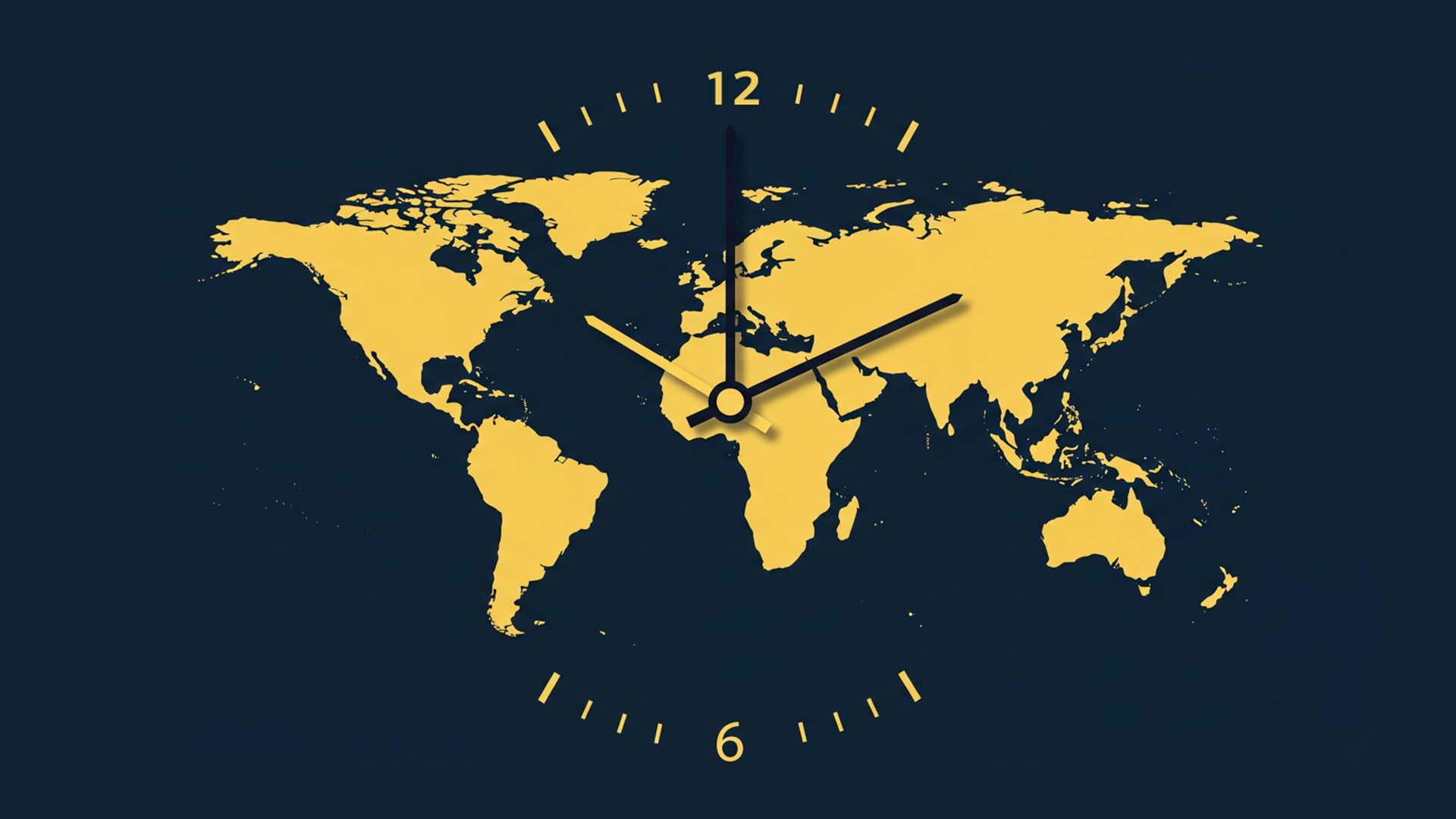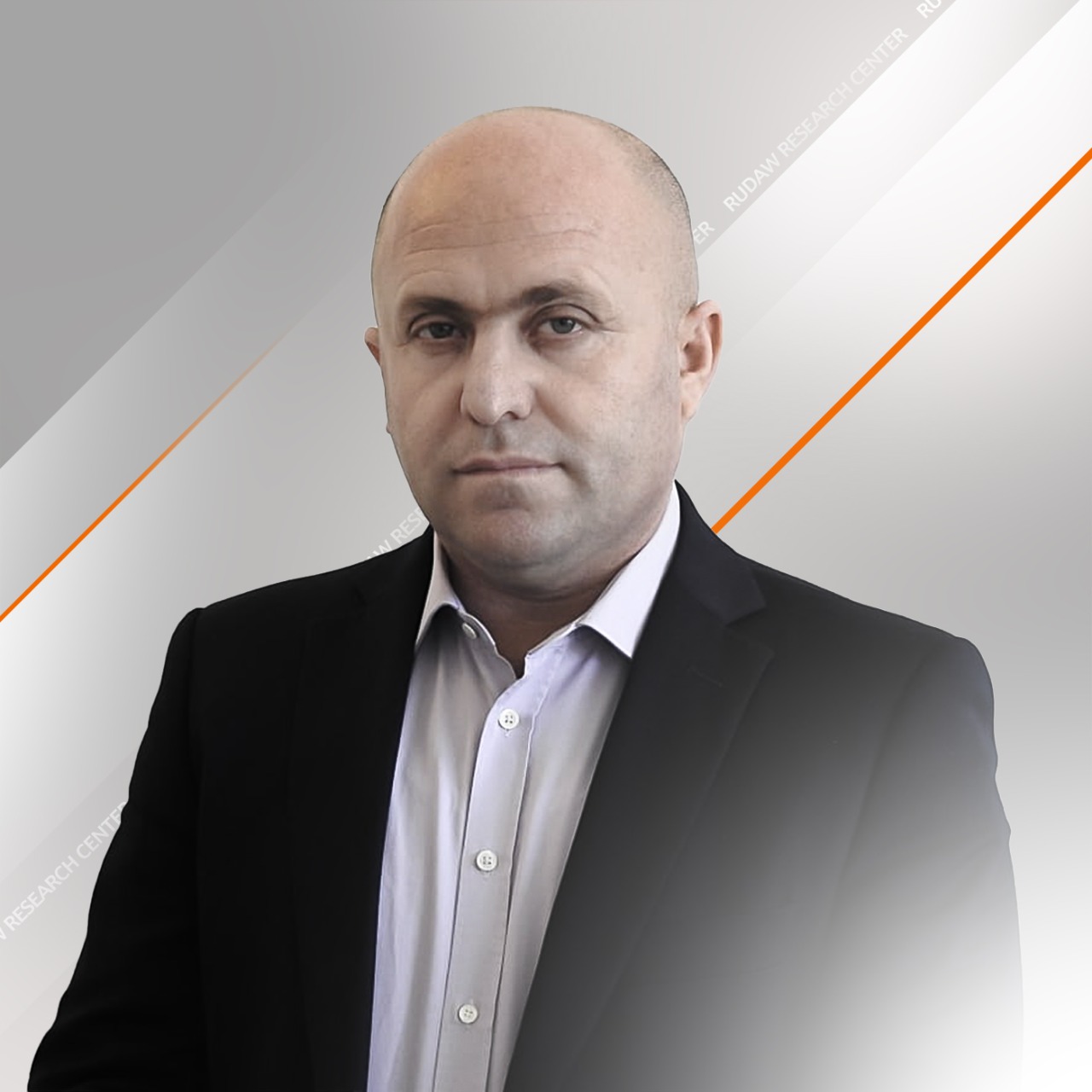Kurds in the Shadow of the Slow and Fast Rhythms of Today's Middle Eastern Politics
29-04-2025
Trump's two-month deadline for an agreement or confrontation with Iran, the Iranian leader's hope that in the future "by divine grace" a miracle will occur and his opponents will fall, Turkey's rush to dismantle the PKK, Qandil's requests for "an appropriate opportunity" to hold a congress, or Ahmed Shara's initiatives for "rebuilding Syria" - all these express that in the current geopolitical issues of the Middle East, accelerating, speediness or moving slowly has become a strategic option.
In reality, political moments are no longer the same; for some, it's too early while for others it's far too late. This duality of speed versus slowness in events exists because changes in timing might translate into changes in alliances and political balance. Yet amid all this, the pieces on the Kurdish political chessboard still move slowly.
Policies of Speed and Slowness in the Superpowers' Game
In today's world, the competition between global powers is somewhat tied to who can move faster or who can exercise more restraint. Trump stands above all those who are in a hurry. In reality, it's a big question how an issue like Iran's nuclear program, which has been troubling 6 US presidents for more than 25 years since 1999, can be resolved in his two-month timeline, or how the 3-year Russia-Ukraine war can be ended in a day as he had claimed. Just as ending the decades-long Israeli-Palestinian conflict is not an easy task, especially when his deadline for the release of hostages held by Hamas at the end of January this year did not succeed. Perhaps one reason for Trump's policy is that he believes if things continue as they are, his country will fall behind China.
As Putin appears to be in no hurry to end the Ukraine war, which is increasing costs for Europe and America, China's President Xi Jinping is also approaching issues cautiously, at a slower pace, and has said that in the current situation, he favors stability, perhaps because the time factor is currently working in his country's favor. Beijing has established three phases to gradually transform its military into a global force by 2027, 2035, and 2049. In 2024, China's third aircraft carrier - Fujian (CV-18) - began its sea trials. It has developed the DF-27 hypersonic intercontinental missile with a range of 5000-8000 km that can reach into American territory. China wants to become dominant in AI, semiconductors, quantum science, and biotechnology, as it will invest the equivalent of 23% of its GDP in technology by 2026. In space, it has surpassed Russia and wants to become America's main competitor. Trump is concerned about China's monopoly over valuable global mines, energy corridors, and supply chains increasing, so he wants to limit China's access to the Middle East, particularly Iran's cheap oil, attract significant Saudi and Gulf investment to his country, and through the Abraham Accords and reconciliation between Turkey and Israel, find more opportunities to counter Beijing. This can directly impact the Kurdish issue.
In this framework, Trump's desire for a rapid withdrawal from Syria may increase Washington's pressure for an agreement between the Kurds and the new Syrian government, similar to the role the US military played in the Jolani and Kobani agreements. He may also increase his efforts to encourage Turkey to reach an agreement with the PKK. Similarly, he might support strengthening the Kurdistan Region's role in Iraq, especially as Iraq moves toward another decisive election at the end of this year.
Kurds and the Pieces of Regional Politics
Trump's two-month deadline for Iran, which as he says, must result in either an agreement or confrontation, is important for the Kurds. Iran's leader Ali Khamenei in his latest speech mentioned that "Imam Hassan's agreement with his opponents" was temporary. This may be to calm the ultra-conservative wing of his political system who daily speak against the Pezeshkian government's negotiation efforts, but in reality, he views political timing from an ideological-political perspective and believes that everything happening now is temporary and one day the situation will reverse. Iran uses its relationship with China and Russia as a pressure card against America, hoping that American pressures won't last long. Besides that, it aims to proceed without issues until October this year to eliminate the risk of international sanctions being reimposed. Meanwhile, Israel is concerned that Trump's "America First" policy might limit Washington's support, so it wants to take quick action regarding Iran's nuclear dossier.
Although Iran has spoken about its strategic relationship with China, a gas purchase agreement with Russia, and the establishment of a new nuclear facility by Russia, it is unlikely that a businessman and politician like Trump would make a deal that doesn't bring economic benefits to his country while allowing China, Russia, or Europe to take advantage. Therefore, there is still uncertainty about the possibility of an agreement or confrontation between Tehran and Washington.
If an agreement is reached, which might include opening doors for American companies to enter Tehran, it means that Iran's situation, both internally and externally, will move toward more change. This could potentially create important opportunities for the Kurds in Eastern Kurdistan (Iranian Kurdistan) and the Kurdistan Region of Iraq. However, if it turns into conflict, Kurdistan will undoubtedly become part of that battleground. If a war breaks out, the Zagros Mountain range, which is an important part of Iran's military geography and surrounds Kurdish cities, will become a sensitive security field, which could translate into the government's efforts to increase military-political control in these areas. Additionally, American bases in the Kurdistan Region might again become targets for armed groups from Iraq or even Iran.
Quick but Fragile Reconstruction of Syria and the Issue of PKK Disarmament
Ahmed Shara, who suddenly emerged like a lightning bolt last year and toppled Assad's government, wants to close Hezbollah's transit routes on the border, although it seems difficult for him to fully succeed in this. He closed the bases and headquarters of many Palestinian groups close to the Resistance Front in Damascus and arrested some Islamic Jihad leaders. Apparently, he has incorporated most armed groups into the army, although in reality none has actually disbanded. He has moved softly with Kurds and Druze in hopes of gaining Western support, lifting Syria's sanctions, and recovering billions of dollars of frozen Syrian assets. In his relations with the SDF, he hoped to resolve all issues within 3-4 months, while the other side believed it would take several years. Finally, they agreed to resolve their issues by the end of this year, but disagreements over implementing the Tishrin Dam agreement, Kurdish language education, and the Kurdish unity conference in Qamishlo may indicate the fragility of the agreement made between both parties. Additionally, the recent movements of the Ansar al-Sunna group, which announced in recent days that it will start punishing officials of the former regime itself, could put al-Shara's government in a difficult position, especially as Shara wants to promise the world that radical Islamic groups will not gain strength while fearing the possibility of an Alawite uprising.
Both Turkey and Israel are in a hurry to improve the situation in Syria for themselves. Netanyahu considers Trump's first year as the greatest opportunity to use the Washington-Tel Aviv alignment on preventing Iran, the Abraham Accords, and redesigning Syria's new situation according to its own strategic security. Turkey is also in a hurry to resolve the integration of the SDF into the Syrian army and prevent an autonomous administration. Beyond geopolitical goals, it sees Syria's reconstruction as a golden opportunity for its economy, especially Turkey's construction sector, which accounts for 30% of the country's GDP. This could be good news for Turkey's ruling party, as many construction companies appear as its supporters. Iran, meanwhile, prays for the day when Syria's situation deteriorates and turns upside down for Turkey and Israel.
In this situation, the Qamishlo conference was a late but important step for the Kurds, although it faced many internal and external obstacles. Just as three flags were raised instead of one, the diversity of different perspectives is one obstacle, and the fate of Ocalan-Turkey negotiations on PKK disarmament is another. The Kurds betting on the reemergence of Syria's civil war is a mistake; that war may eventually return, but the problem is that Kurds have little time at their disposal. Therefore, while rushing may not be good, moving too slowly might also be costly. Hoping for Israeli support for Kurds may also be a mistake, as it is unlikely that Israel would exchange the possibility of reconciliation with Turkey for costly support of the Kurds.
While negotiations to end the long-standing conflict between Turkey and PKK are taking place, both sides are fighting a time battle. Ankara wants the PKK to disarm and dissolve itself in the near future. Devlet Bahceli has demanded that the PKK hold its congress early next month. Erdogan, while facing obstacles with the Istanbul mayor and CHP, wants to resolve the PKK issue as soon as possible to use it as an important political achievement domestically, not to mention that it provides commercial opportunities and economic growth for his country in Syria and Iraq. However, it seems that the PKK is not in a hurry like Ankara. Therefore, it is likely that this issue will not succeed in its current form, and if it does, it will only be superficial. So, the PKK and Turkey issue will continue until the parties feel they are winning. Another point is that, in all likelihood, the issue of PKK disarmament is not only a Turkish matter but also a major issue for Iran, as for many years the PKK's presence in the mountains has served as a barrier for Iran to prevent the establishment of anti-Iranian armed groups. Besides, any peace between the PKK and Turkey would make Iran the only Middle Eastern state that has not yet opened up on the Kurdish issue.
Conclusion
After more than six months since the election, the Kurdistan Regional Government has still not been formed. This is while in less than 7 months, another election will be held that could change the dynamics behind the government formation process. The fate of the government may depend on the type of expected alliances in Iraq's upcoming election, just as the previous one in 2021 turned the relationship between Kurdistan's two main parties upside down. If the KDP and PUK are not on the same alliance line, then any coalition government will face problems in the future. Additionally, regional changes and expectations regarding the outcome of Iran-US negotiations may be another influential factor in the timing of government formation.
In today's Middle East, speed and slowness are no longer just measures of time, but part of geopolitical competition. Just as Kurdish geography is at the heart of competing powers' areas of influence, so too are its timelines divided between the poles of speed and slowness. Certainly, navigating this situation in a way that minimizes harm requires masterful rearrangement of political timing!






